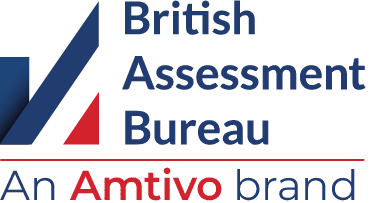ISO 27001 doesn’t guarantee compliance under the GDPR, but certification ensures your organisation is on the right track when it comes to protecting personal data.
Find out more about ISO 27001, the GDPR, and the extra steps you need to take to obey the law.
What Are the Differences Between ISO 27001 and GDPR?
ISO 27001 is an internationally recognised information security management standard. It was published by the International Organisation for Standardisation (ISO) in 2005 and revised in 2013. ISO 27001 helps organisations to set up and maintain a set of processes to help handle sensitive data relating to staff, customers, and partners, collectively known as an Information Security Management System (ISMS).
The General Data Protection Regulation (GDPR) is a set of laws around the use of personal data. It came into force in 2018 and applies to everyone who processes data – including names, IDs, medical and biometric data, political opinions and more – of people in the EU.
The biggest difference between the two is that GDPR is a legal requirement. Failing to protect customer data as required by GDPR can result in hefty fines from the Information Commissioner’s Office (ICO) and long-lasting reputational damage. Some large organisations, including British Airways and Marriott International, have already faced substantial penalties as a result of data breaches.
The second big difference between ISO 27001 and GDPR is intent: ISO 27001 was established years before GDPR came into force, and so was not primarily designed to establish compliance with the regulation. But GDPR is actually more limited in its scope: it focuses purely on personal data, whereas ISO 27001 takes a much broader approach to your data security.
Going Beyond GDPR
The processes established by an ISMS are designed to help you protect all of your data. This includes customer and employee data, but also extends to Intellectual Property (IP), sales data, financial information, and more.
ISO 27001 helps you to protect this sort of data by helping you anticipate potential threats, determine what to do in the event of an attack, and take preventative action to avoid any issues in future.
While you can have an ISMS in place without ISO 27001, maintaining the standard helps ensure an organisation strives to continually improve its processes as technology and legislation change. It also demonstrates to your customers that you take their security seriously and conveys credibility when tendering for the public sector or work with larger clients.
The rigorous data security processes that result from ISO 27001 are very much in line with the spirit of GDPR, and so can assist you on your way to compliance with the regulation.
How Does ISO 27001 Help You to Comply With GDPR?
Here are just some of the ways ISO 27001 can help you to comply with the GDPR:
Identify gaps in your GDPR compliance
ISO 27001 requires an organisation to identify and comply with information security-related legal requirements. This means that, as part of assessing your organisation to see if it complies with the ISO 27001 standard, your auditor will also have to examine how well your organisation complies with GDPR.
This means that their report, which includes the areas in which you need to improve in order to achieve your certification, will by extension identify areas in which you do not comply with GDPR.
The ISO 27001 certification process can help you identify areas where your organisation doesn’t yet comply with GDPR. This is due to the fact that ISO 27001 requires an organisation to identify and comply with information security-related legal requirements, such as GDPR.
As part of your first assessment, your auditor will identify areas you need to improve to meet the standards for ISO 27001. This, by necessity, will include areas you need to improve to comply with GDPR, as this is a requirement of the standard. So, by working towards your certification, you’ll be working towards compliance too.
Demonstrate your controls
Having your ISO 27001 certification helps you satisfy one of the requirements of GDPR. This is due to the fact that GDPR requires organisations to demonstrate that it has appropriate organisational and technical controls in place. Certain recognised international standards or codes of practice can be used to satisfy that requirement, and one of those standards is ISO 27001.
Go beyond personal data
While it does cover how you handle customer information, ISO 27001 isn’t just about protecting personal data. It also means your processes protect all of your information assets, electronic data, and hard copies.
Pay attention to people and processes
While other certifications might just check off your technology, ISO 27001 takes people and processes seriously too, knowing that these more common threats can be the difference between GDPR compliance or a serious data breach.
Put your system through its paces
To adhere to the GDPR, regular testing and audits are essential – that’s how you prove your security is up to scratch. Luckily, if you’re ISO 27001 compliant, you’ll already be testing your ISMS on a regular basis, because that’s part of the standard’s guidelines too.
Be held accountable
The GDPR stipulates that there should be clear accountability for data protection, which may include the appointment of a data protection officer if you process large amounts of personal data. ISO 27001 certification means your security is embedded in your organisation’s culture and structure already, with a senior individual responsible for the ISMS.
Mitigate risk
Risk management is a key part of ISO 27001, ensuring that you can identify where the organisations strengths and weaknesses lie. Regular risk assessments will certainly support GDPR compliance.
Keep improving
As with most ISO standards, one of the clear benefits of certification is the processes are designed to help you keep improving your data security. The continual monitoring and reviews built into your ISMS means that you can rest easy knowing your system can adapt to change while identifying and mitigating risk.
Get certified
ISO 27001 certification means an independent assessor has determined you have adequate security measures in place. This goes some way to proving, in line with the GDPR, that the controls you have work as they should.
What More is Needed to Comply With GDPR?
As you can see, ISO 27001 certification is hugely helpful when it comes to complying with GDPR. It can help to simplify the process, with a lot of overlap between what is expected of each, but it’s not enough on its own. In order to comply with GDPR, you need to make sure you are taking into account:
- Consent – you need to prove people agreed to the personal data being processed.
- The right to be forgotten – people need to be able to have their personal data deleted or disseminated.
- The right to object – they also are allowed to refuse for their data to be processed for direct marketing and other purposes.
- International transfers – transferring data needs to be carried out in accordance with the European Commission.
Our online GDPR training course is designed for companies who want their staff to understand and comply with GDPR. The course concludes with an assessment, completion of which provides the delegate with a certificate.
Begin Your Journey to GDPR Compliance With ISO 27001
A well-maintained ISMS with ISO 27001 certification has a number of clear benefits – from plugging gaps in your security and reducing the risk of cyber-attacks to helping you win new business and gain a competitive edge in the marketplace. But it’s also a great first step on your journey to GDPR compliance, helping your organisation set up the data security processes it needs to reduce the risk of a breach and which are now required under the legislation.
If you want to learn more about ISO 27001, how it can benefit your organisation, and how to get on track to certification, take a look at our Beginner’s Guide to ISO 27001.


